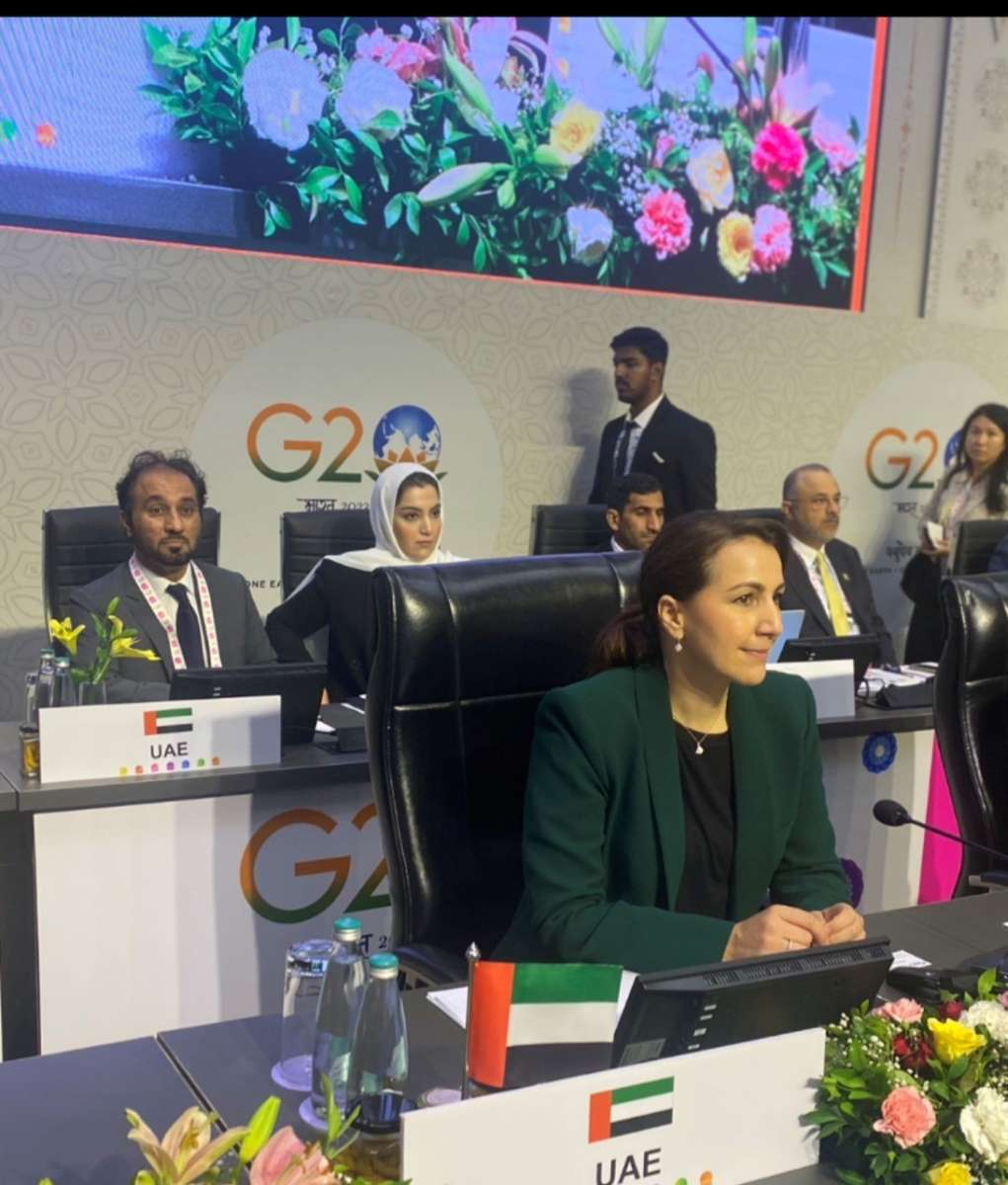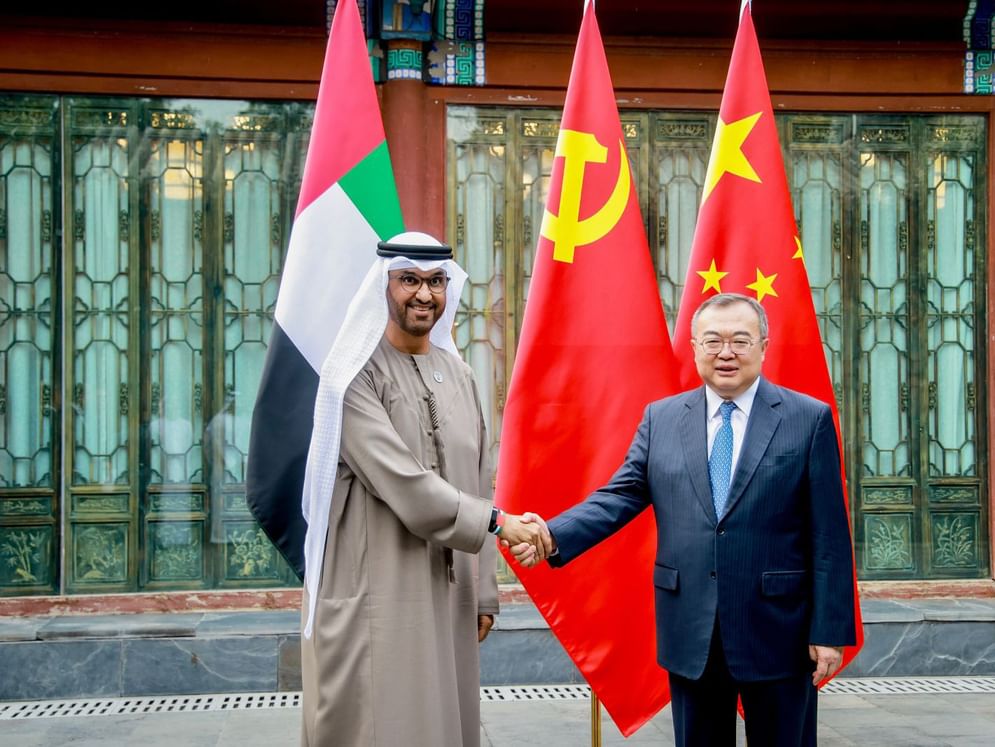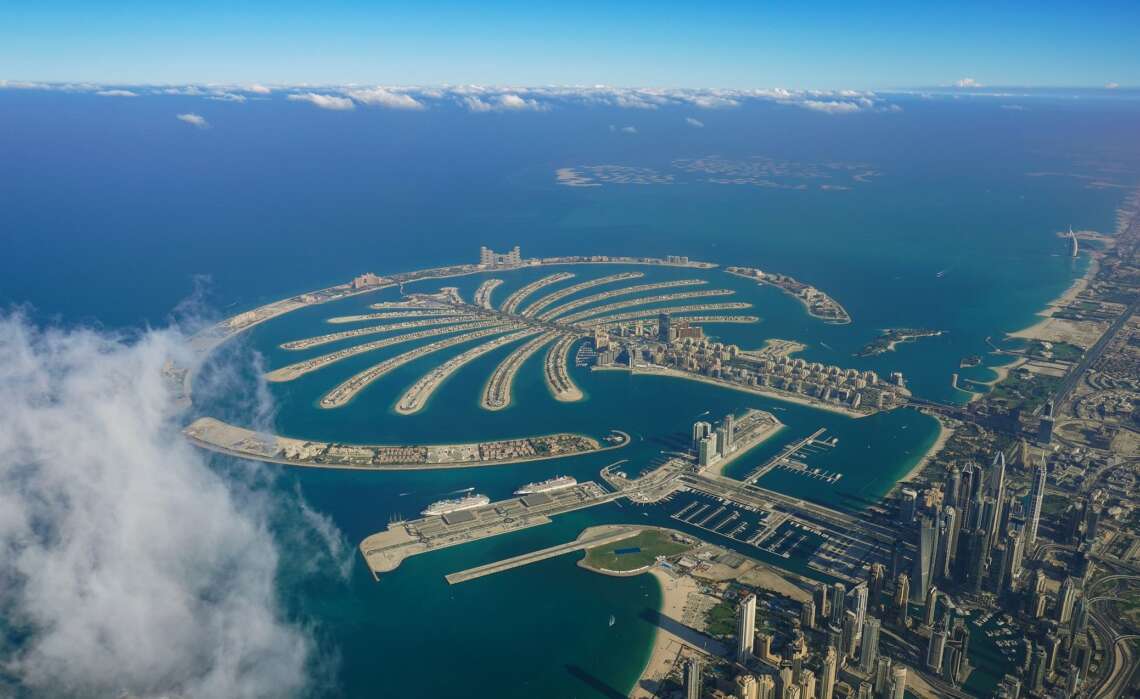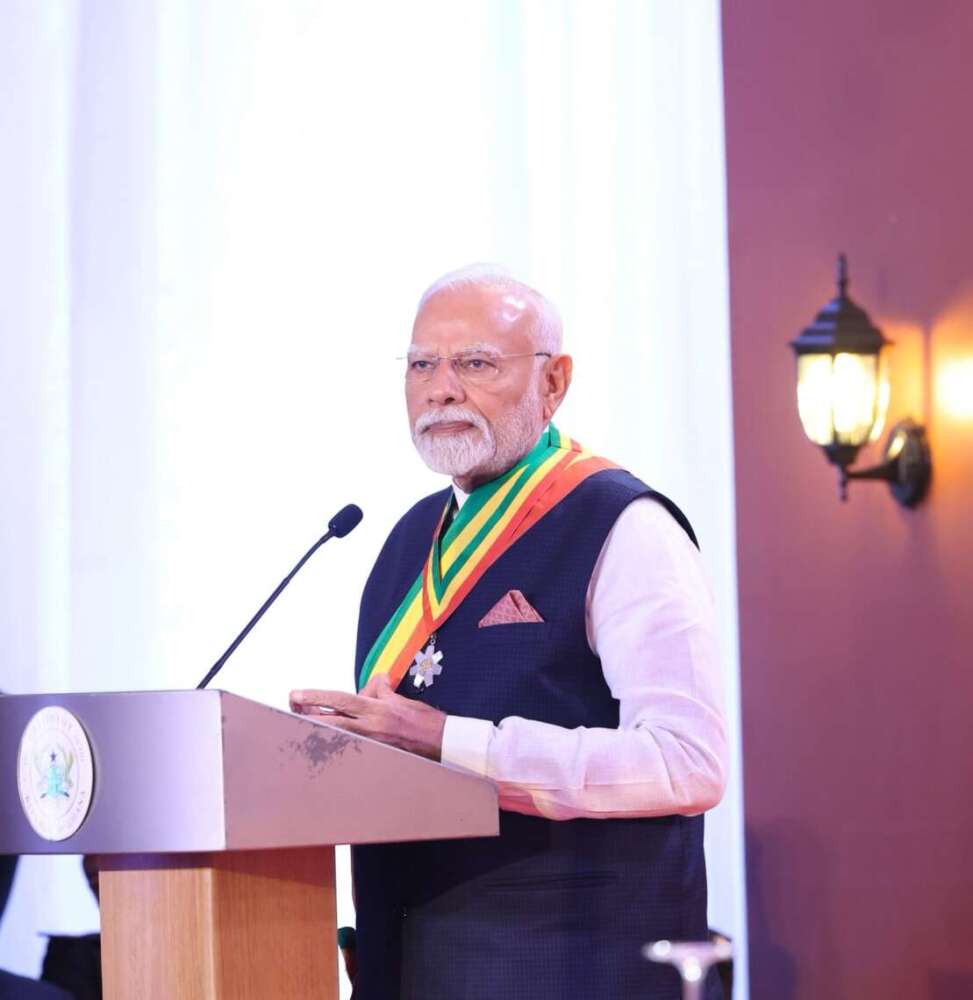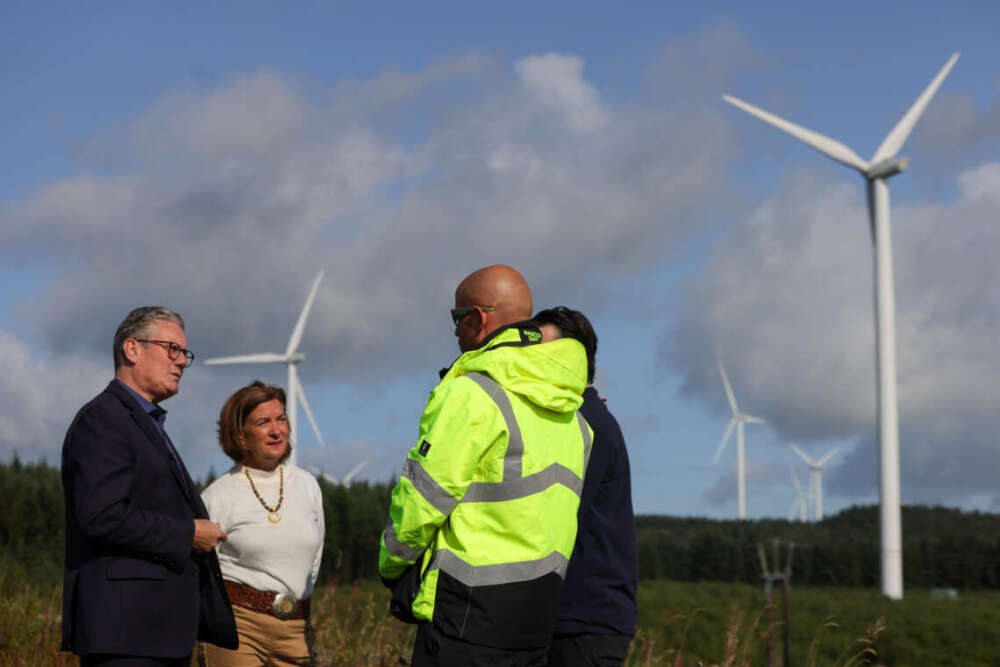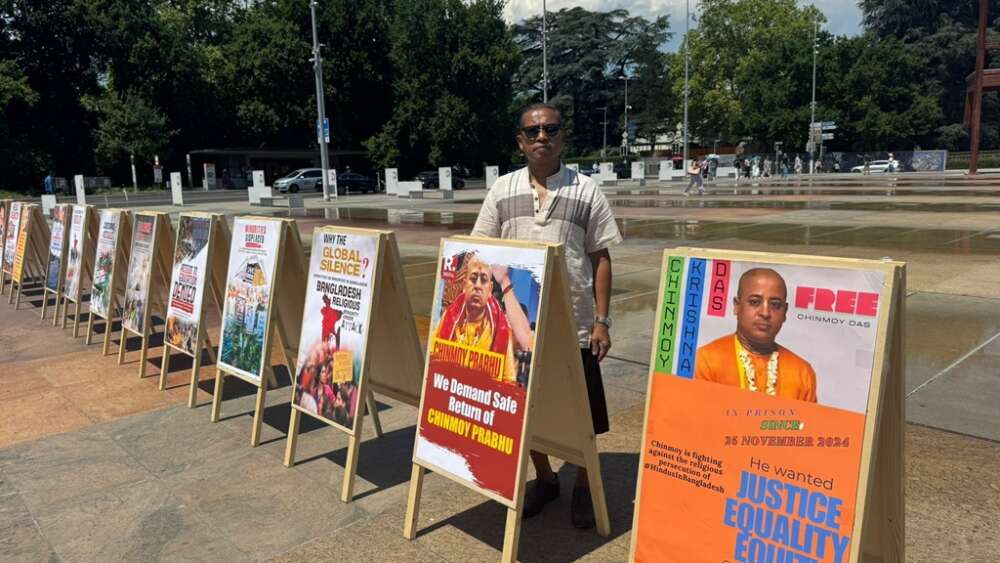In the declaration, the G20 Agricultural Track highlighted their concerns about intensifying malnutrition rates and worsening global food insecurity in developing nations…reports Asian Lite News
UAE Minister of Climate Change and Environment Mariam bint Mohammed Almheiri and G20 Ministers of Agriculture met in Hyderabad, India, to discuss the inclusive food and agriculture systems of the future.
The group worked to finalise the G20 Agriculture Ministers’ Declaration 2023, a document that reiterates the group’s collective commitment to ensure food security and nutrition for all.
In the declaration, the G20 Agricultural Track highlighted their concerns about intensifying malnutrition rates and worsening global food insecurity in developing nations.
They recognised that these challenges have been compounded by poverty, the COVID-19 pandemic, accelerating climate change, ongoing conflicts, and biodiversity loss worldwide. The declaration emphasises the importance of creating sustainable agriculture and food systems that will be resilient to changes in climate and biodiversity loss.
According to Mariam Almheiri, the G20 Agricultural Track meeting discussed a number of issues that significantly impact people’s lives and livelihoods worldwide. It addressed the challenges of climate change and ensuring food security, which requires the unity of the global community.
In the meeting, the G20’s Agricultural Track highlighted their concerns about rising malnutrition rates and the exacerbation of global food insecurity in developing countries. They acknowledged that poverty, the COVID-19 pandemic, accelerating climate change, ongoing conflicts, and biodiversity loss worldwide have compounded these challenges.
The statement emphasised the importance of establishing sustainable agricultural and food systems capable of adapting to climate change and biodiversity loss.
In her address, Mariam Almheiri thanked the Republic of India for organising the event that brings together the G20 and hosting the Agriculture Ministers’ Group Meeting.
She also acknowledged that this was the UAE’s third invitation to join the G20 meetings, affirming that cooperation between the UAE and the member states is evolving in various fields and that the UAE is keen to enhance this cooperation in various economic fields, with particular attention to strengthening food security and dealing with global climate change issues.
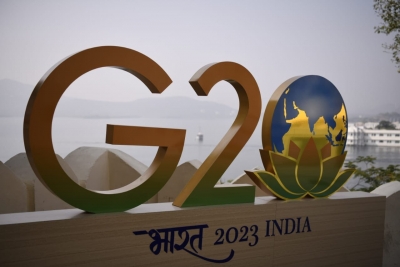
Almheiri explained that the G20 Agricultural Track meeting discussed a range of issues that significantly affect people’s lives and livelihoods worldwide. Addressing climate change challenges and reiterating food security requires the unity of the global community.
During her speech before the G20, Almheiri said: “The current global food systems are the biggest contributors to biodiversity loss, deforestation, drought, and freshwater pollution in the world, as well as being the second-largest generator of greenhouse gas emissions.”
She affirmed that the G20 could cooperate more on transforming the agricultural food systems, taking on that responsibility and leading the world by reaching a consensus on transforming these systems as quickly as possible.
Almheiri said: “The UAE will host the COP28 in November, and we will focus on stimulating the global response to many issues arising from climate change, from food systems to clean energy and biodiversity.”
In this context, Almheiri called on the G20 member countries to support the Global Framework on Agriculture, Food Systems, and Climate that will be announced next month during the United Nations Food Systems Summit.
She said: “We are putting the final touches on the framework that aims to enhance agricultural food systems within the global climate action.”
Almheiri highlighted that Dr Sultan Al Jaber, Minister of Industry and Advanced Technology, UAE Special Envoy for Climate Change, and COP28 President-Designate, will focus on the file of transforming food and agricultural systems as part of his main agenda as the appointed President at the upcoming Conference of Parties in the UAE. This will help accelerate action and investment towards pro-climate and sustainable agricultural and food systems, referred to technically as “agrifood systems”.
During the meeting, the group expressed concern over the rise in food prices, ongoing disruptions in global supply chains, and the volatility in the prices of food and fertilisers. They also called for an increased focus on enhancing the resilience of supply chains due to their importance in achieving food security, where the reliability of supply chains is particularly crucial for those living in environments with low food security, especially women and girls in emergencies and humanitarian crises.
The joint statement, signed by the agriculture ministers of the G20 on enhancing global food security, emphasised the importance of continuing to exchange knowledge between countries to support innovation efforts in the future.
All representatives at the G20 Agricultural Track meeting stressed the urgent need referred to in the statements of G20 leaders at the Matera and Bali summits.
The ministers pledged to assist low-income countries, especially net food-importing developing countries, in tackling the multiple challenges they face due to climate change. The group also welcomed the decision of the Conference of the Parties (COP27) on climate change entitled “Joint Action in Sharm El-Sheikh on Implementing Climate Action for Agriculture and Food Security”.
The G20 Agriculture Ministers’ Statement for 2023 includes an annexe on the Global Research Initiative on Millet and Ancient Grains. This vital project aims to diversify and improve sustainable food sources, focusing on underutilised grains that can adapt to climate change. The goal is to enhance the efficiency of grain research by enabling scientists to publish results effectively, create online platforms to facilitate researcher communication and organise knowledge exchange processes under mutually agreed terms.
The project of the Global Research Initiative on Millet and Other Ancient Grains aims to support efforts within the International Year of Millet 2023 program announced by the United Nations.
The ministers also called for new initiatives to boost innovations in the production and consumption of crops, as well as more research on the biological enhancement of crops.
During the event, Mariam Almheiri participated in a side session on how the agricultural sector can keep up with the changing world.
She showcased the UAE’s experiences in this field, from its successes in vertical farming to its ambitious national strategy for Food Security 2051.
The UAE’s participation in the G20 agricultural track, hosting the upcoming COP28 conference, and declaring a year of sustainability exemplify the country’s commitment to international cooperation to tackle climate change. This is in addition to launching the “Agriculture Innovation Mission for Climate” (AIM4C) initiative in collaboration with the United States, which seeks to encourage investment in climate-smart agriculture and support the development of food systems over five years.


